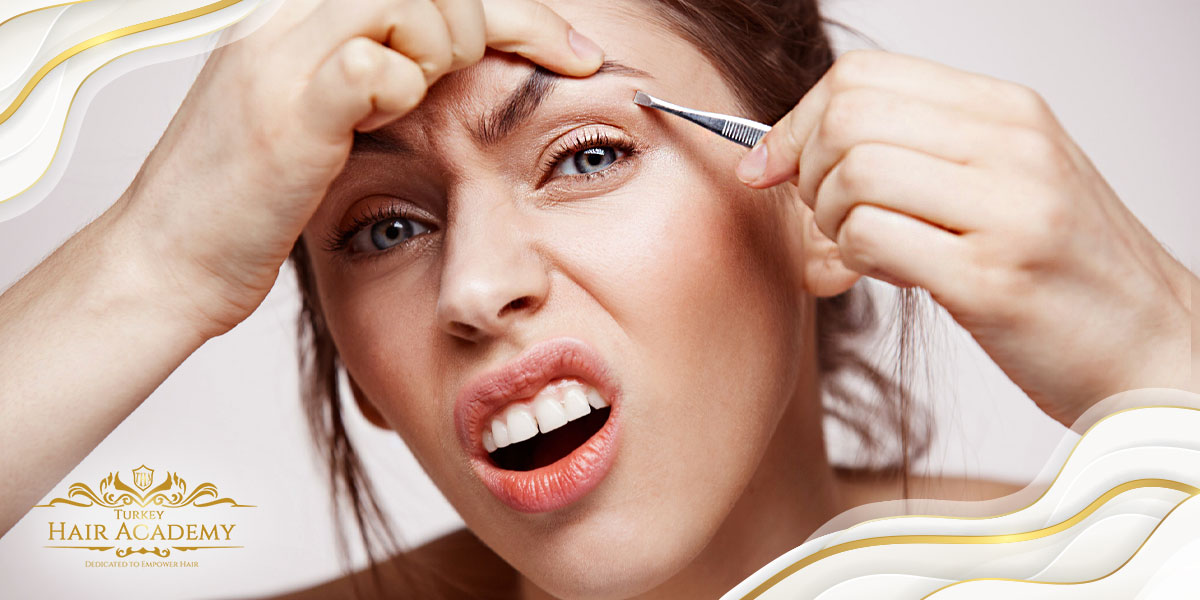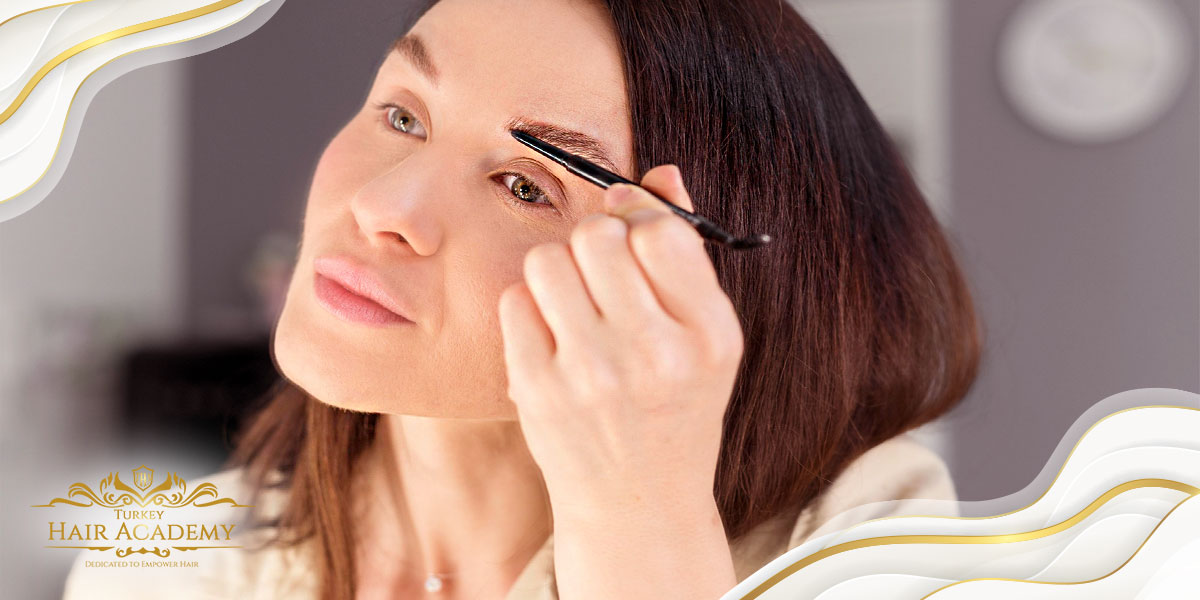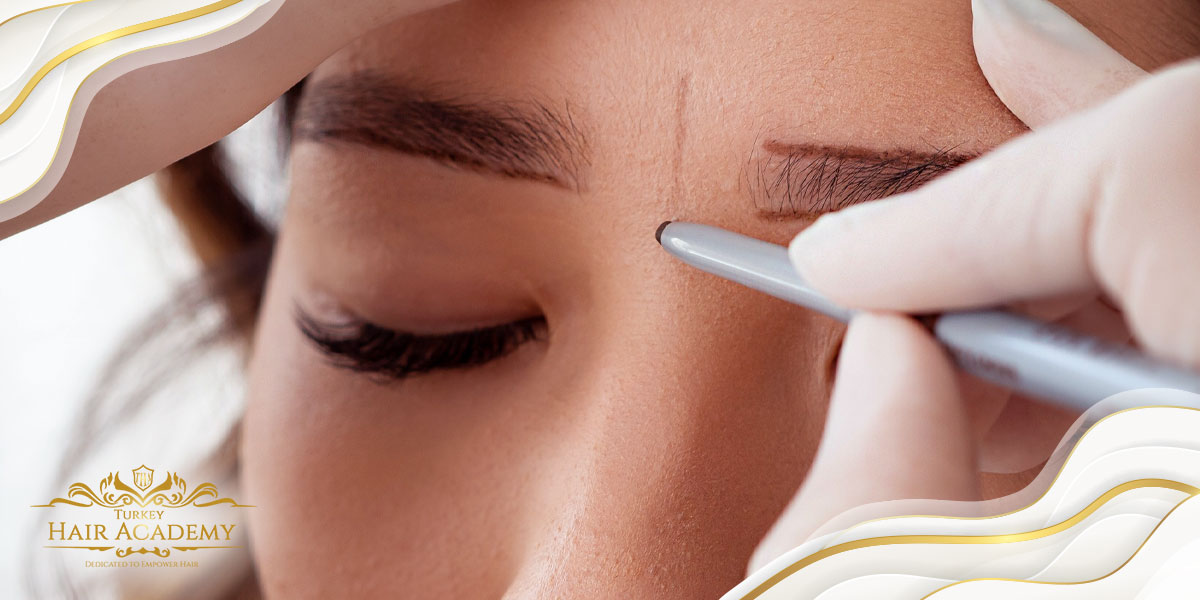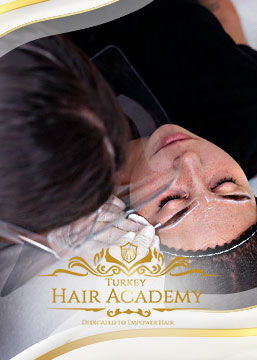Eyebrow hair loss can disrupt the appearance of the eyebrows, which play an important role in expressing facial expressions. This can be an unpleasant experience for those affected. It can affect a person’s self-confidence and make social interactions difficult.
To avoid such a situation, it is important to know what can cause eyebrow hair loss and how it can be treated. We have prepared this article to provide information on these topics.
Contents
What are the Causes of Eyebrow Hair Loss?
Hair loss on the eyebrows can have many causes. These reasons can be listed as follows:
-
Improper techniques to remove eyebrow hair, such as pulling or strong plucking

-
Stress
People who experience anxious and stressful times may experience hair and eyebrow loss. Stress can not only cause many diseases, but it can also affect the healthy function of hair follicles, leading to hair loss. Although this condition is usually temporary, it is advisable to see a doctor if hair loss continues for a long period of time.
-
Aging
As people age, their hair and eyebrows become thinner, which can lead to hair loss.
-
Nutritional deficiencies
Irregular body functions and unhealthy eating habits can cause your eyebrows to fall out. In particular, the intake of protein, iron, zinc and vitamins plays an important role in the health of eyebrows and hair. Nutrient deficiencies can lead to weak and brittle eyebrows.
-
Hormonal reasons
Loss of eyebrows may be hormonal, for example, due to hormonal changes during pregnancy and after childbirth, menopause, thyroid problems, and polycystic ovary syndrome.
-
Pulling out eyebrows, constantly rubbing them.
-
Environmental factors
Using the wrong cosmetic products, not observing their cleanliness and sterility during use, and not cleaning them thoroughly after use can lead to eyebrow loss over time.

-
Skin diseases
Eyebrow loss is also observed in people with skin diseases such as psoriasis, eczema, and alopecia areata.
-
Chemotherapy
Chemotherapy drugs administered to cancer patients can cause hair loss in their eyebrow hair follicles, just like in their hair strands.
Treatment and Prevention Methods for Eyebrow Loss
Although, as mentioned above, there are many factors that can cause the loss of eyebrows, the underlying cause of the loss should be very well determined and eliminated.
Natural methods can be used to prevent eyebrow loss. Some oils like castor oil, almond oil and aloe vera are commonly used by those who are trying to make their eyebrows grow and become thicker.
Proper nutrition can be helpful in preventing eyebrow loss. In some cases, only a vitamin deficiency can cause eyebrow loss. Therefore, it is recommended to eat foods rich in substances such as vitamin A, zinc, iron and vitamin C to minimize eyebrow hair loss.
Proper care of the eyebrows helps to keep them healthy and strong. Plucking the eyebrows too much can cause them to fall out. When plucking the eyebrows, it is important to use the right method and be careful.
Using natural eyebrow serums can help slow or stop hair loss.
If hair loss cannot be prevented and the patient is not satisfied with his/her appearance, the patient can opt for eyebrow transplantation.

Eyebrow Hair Loss: Which Age Groups Experience it More Often?
The age factor affects eyebrow hair loss, just like in hair loss. The question “Do eyebrows fall out with age?” may come to mind. As we age, eyebrows can become thinner and sparser. The hair follicles in the eyebrows may stop growing over time, and the eyebrows that are still growing may lose their color and turn gray or white.
Although hair loss from the eyebrows can occur in any age group, it is more common after the age of 50.
Can Alopecia Areata Cause Eyebrow Hair Loss?
Alopecia areata usually occurs on the scalp, more rarely in the area of the eyebrows and beard. Alopecia areata affects the eyebrows and causes eyebrow loss. The areas where the hair loss occurs have a small round or oval shape.
Alopecia areata is an autoimmune disease. This means that the poorly functioning immune system of the affected person damages their own cells. The exact cause of alopecia areata is not known. However, genetic factors, stress, poor morale and infections may contribute. It usually occurs in young people without symptoms.
Can Lost Eyebrows Due to Alopecia Areata be Transplanted?
If you have suffered eyebrow loss due to alopecia areata, you must undergo treatment before considering transplantation. After treatment for alopecia areata, the lost hair and eyebrows may grow back. Therefore, it is recommended to wait at least 2 years after treatment before considering eyebrow transplantation. Once it is confirmed that alopecia areata has been successfully treated and hair follicles are no longer growing in the affected area, hair, eyebrow and beard transplants can be performed.
If you would like more information or have any questions, please contact us.


